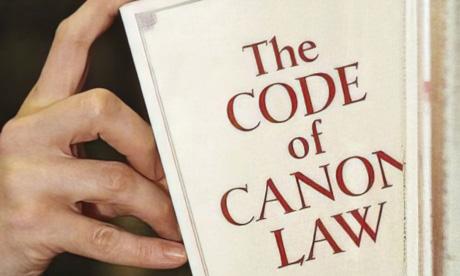A group representing US Catholic priests has developed guidelines for informing priests of their canonical rights when they are accused of misconduct – including sexual abuse.
Survivor advocates are critical of the move, saying providing guidance could help cast accused priests in an overly sympathetic light.
The Association of US Catholic Priests (AUSCP) say the guidance is necessary.
It notes over the last 20 years diocesan leaders have failed to respect priests’ rights under canon law. In some cases the accused clerics have languished in administrative “limbo” for several years while civil and church authorities investigate allegations.
The AUSCP is mailing the guidelines and an accompanying wallet-sized card to the United States’ 30,000-plus diocesan and religious priests.
“We’re not taking a position on whether someone is guilty or not guilty. We’re saying there’s due process, here’s what it is, and we will help you access it if you don’t get that help from your diocese,” AUSCP says.
AUSCP members say they’re not looking to deflect attention from survivors or obstruct investigations of clergy sex abuse. Abusers should be held accountable for their crimes, they stress.
The critics
While they agree that due process is important, clergy sexual abuse survivors and their advocates say placing too much emphasis on the accused priests’ plight risks a return the days of dismissing victims and protecting abusers.
Falsely accused priests’ anguish is “minor compared with the pain, the loss and the betrayal experienced by survivors, their families and their parish communities,” says one concerned commentator.
Another cited research that he said underscores the reality that the ranks of clergy sex abuse survivors outnumber those of falsely-accused priests” by an order of magnitude.
“We recognise that anyone accused of a crime in America has a right to due process.
“We also reaffirm that we believe survivors and will support those who come forward with allegations of abuse as, far more likely than not, their stories are true.”
Justice
“I don’t try to get guilty priests [acquitted], that’s not my job,” says a member of Justice for Priests and Deacons, an organisation that advises clergy members of their canonical rights.
Other members say clergy have rights under canon law. But Church leaders have often disregarded those rights, especially over the 20 years since the US bishops adopted the Charter for the Protection of Children and Young People.
The AUSCP agrees. “Perhaps the pendulum has gone too far the other way … where you’re guilty until proven innocent, which is the exact opposite of what’s fair and just.”
A civil and canon lawyer not affiliated with the AUSCP says he sees the initiative as “an attempt to bring the pendulum back a little bit more towards the middle, where it should be.
“The investigation should be made before you take action against the priest.”
“No bishop wants to keep in place someone who does turn out to be an abuser of children,” he said. “The problem is that not every charge is true.”
Source
